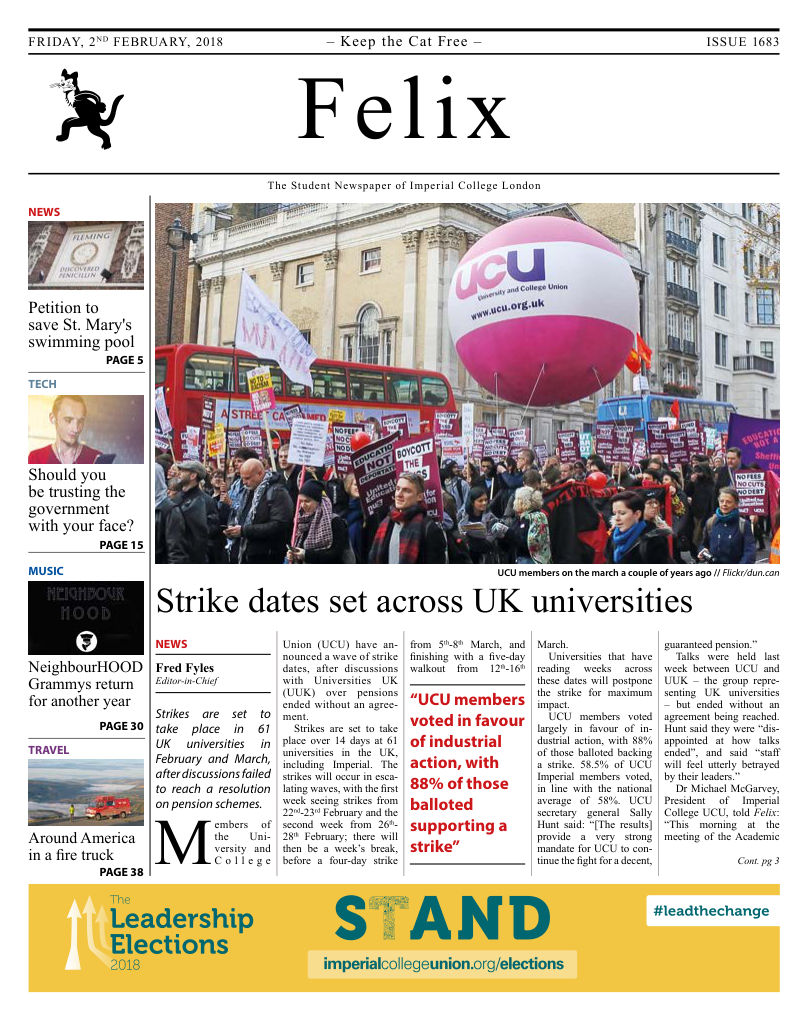All the President’s pigs – why we can’t ignore the issue of free choice
There is no doubt the male attendants of the President’s dinner were engaged in lewd behaviour. But treating the hostesses as victims ignores the reality of their free choice to attend.

Picture the scene: you, a hot young 20-something in university, are invited to a dinner party by a few members of the opposite sex. They instruct you to wear something revealing and tight, and even go so far as to specify what sort of underwear you should have on. You go, and, predictably, they are flirtatious; propositioning you, touching you, and generally revelling in lewd hedonism. Are you surprised? Unless you were brought up under a rock, I would imagine not.
This is the preface to the now infamous Annual Presidents Club charity dinner, that took place on the evening of Thursday 18th at the plush Dorchester hotel. It was a male-only event, at which 130 ‘hostesses’ – young, pretty girls – were given instructions to dress in a manner identical to those in our hypothetical scenario: they were told to wear “skimpy black outfits with matching underwear and high heels….black sexy shoes”. The Financial Times went in undercover, exposing bawdy male behaviour, with roaming hands, outrageous comments, and multiple propositions to spend the night. Rightly, there was a sentiment of disgust at this behaviour. Oddly, in my opinion, there was also an attitude of shock, and an overall tone of victimisation on the part of the women involved.
Yes, the male guests largely behaved like pigs – but that doesn’t mean that the women were victims. Caroline Dandridge, the woman responsible for recruiting the hostesses, informed them in advance of the nature of the evening, banning them from bringing phones, advising them to lie to boyfriends about whereabouts, and telling them in advance about the “annoying” men after relaying the aforementioned dress code. Gross, I know – but warning nonetheless. These women knew what they were doing, and chose to do it anyway. Some of them have done the event for multiple years, and the FT itself admitted that some hostesses interviewed viewed the night as “fun”. Even for those who didn’t, it is absurd to want to believe that they had absolutely no idea what they were going to be there for. They were obviously and sickeningly invited as pieces of meat, and were treated accordingly. I think that this behaviour, a seedy underbelly of human (mostly male) nature, is despicable, and ever since I first encountered people with these attitudes at school, I was revolted, and I kept my distance.
But the rhetoric of victimisation on the part of the women is misplaced and exaggerated; it jumps on to the recent bandwagon of lurid men abusing innocent women, and ignores the reality of the choices these women – rightly or wrongly – made. Consider a different scenario: a man going to visit an escort, or going into a strip club. Are the men who generally do this boorish and lascivious? Absolutely. Is the woman in question a victim? Of course not. She made a choice to participate, and her actions are her own. I see no reason why these hostesses, who, by all accounts, were well informed, should be treated as victims.
“The male guests largely behaved like pigs – that doesn’t mean the women were victims”
I was also puzzled by the general attitude of surprise; that this behaviour is deplorable is immutably true, but that it is uncommon is not, and I expect most of us know it. It is an attitude that pervades many societies, especially Western society, which considers itself enlightened and progressive. Lauded establishments such as the Cafe De Paris, where women dance half-naked but it is called cabaret, rather than stripping, are considered artsy, chic, and any other word people like to use to justify their attendance, and to substitute ‘salacious’.
People – mostly men – all over the world behave like this, and many institutions in our society fuel them. Advertising encourages us to think about people solely as objects, and we call someone who takes their clothes off to be objectified a ‘model’, cementing our justification of their presence as non-human gratification machines; television is rampant with over-exaggerated nudity and an obsession with the way people look; magazines show off shirtless men and bikinied women, using the word ‘empowered’ to make us forget that, choice or no, they are presenting people as objects for viewing pleasure. The adult entertainment industry, scavenging on the liberal rhetoric of freedom of expression, instructs its patrons from a young age that people are objects for your pleasure. Whilst I am disgusted by this, and the culture of objectification taken to an extreme by those attendants at the Presidents Club, I have been disgusted by it for some time. That a bunch of rich men get together to be gross is not a surprise — it’s strange that people keep pretending it is. There are consequences of the choices made by society, of the things it deems appropriate and the boundaries it considers acceptable to cross. Western culture has no problem with pictures of half-naked women on the walls of the tube, or the front of a magazine. And yet, it seems shocked to discover that, predictably, this encourages a culture of objectification and lewdness.
The Presidents Club Dinner was an unfortunate event, demonstrating that there are a good proportion of men who are gross, objectifying, badly behaved and lecherous - but this is not news. And yes, the men are horrid, but that doesn’t make the women victims, and if they choose to engage in this sort of work, they sit in the same boat with a society that inculcates objectification. If people are genuinely shocked, and genuinely want this attitude to change, perhaps an introspective look at the practices and values of their society would be prudent.








